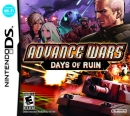Here is a great article that details specifically why some small developers are struggling so much to stay open these days - by one of the members of Iron Lore (Titan Quest) which recently closed.
http://www.edge-online.com/features/the-death-and-birth-rpg-developer
From the outside, Iron Lore Entertainment appeared to do everything right. The studio had the talent, the ideas and the ability to execute; qualities that culminated in the 2006 release of the PC role-playing game Titan Quest, a piece that earned Iron Lore a Game Developers Choice Award for best new studio.
But by February 19, 2008, Iron Lore was finished. The studio made a vague statement on its website saying that it was "unable to secure funding for its next project" and would disband.
Days after the closure, Iron Lore's lead designer Arthur Bruno and art director Eric Campanella quietly (virtually silently) formed Cambridge, Mass.-based Crate Entertainment and bought the rights to that "next project," dubbed Black Legion.
We spoke with Bruno about the events that led up to the demise of Iron Lore and the future of Crate and Black Legion, a game that has yet to find a publisher.
Can you fill in some of the gaps between the closure of Iron Lore to the eventual founding of Crate Entertainment? Did you know soon after the closure that you wanted to start your own company?
We formed Crate in February of 2008 soon after [Iron Lore Entertainment] closed. The owners of Iron Lore were very upfront about the situation for months in advance. They were also professional and thoughtful enough to set an end-date that allowed employees to collect an additional two weeks of pay while doors remained open and people could come into the office and get help finding new jobs.
The closing of Iron Lore was a very sad event in my life but it also presented some unique opportunities. For the last seven years I’ve been a key member of the Iron Lore team, helping to grow the company from the time we were eight guys in a windowless basement prior to signing Titan Quest, to the point where we had shipped three titles with a team of nearly 40. I didn’t think I would feel satisfied just filling a position at a large, already established company. So, instead of dwelling on what had been lost with Iron Lore’s closing, a couple of colleagues and I decided we would dare to seize the opportunities before us and set our sights on the future.
What actually happened at Iron Lore that led to the closure? It's been reported that money ran out during the development of a console version of Black Legion, but what other factors were at hand?
The most direct factor was just the economics of running an independent game studio, which is a risky endeavor by nature. The biggest struggle for independent studios is surviving the gap between projects.
When a game is completed, advances on royalties that developers take to fund development end but it can be several months, if ever, before the developer collects any royalties. Most games don’t hit store shelves for a few months after development ends, then, depending on how the development deal was structured, the publisher may have to earn back the cost of development and marketing before the developer receives any royalty payments. With the average full-scale console or PC title now costing around $14 million to develop plus additional marketing expenses, a game may sell a million copies without the developer earning any royalties. With typical team sizes for an independent studio now being 30-90-plus people, you’re talking about hundreds of thousands of dollars per month to keep the team paid and the studio open. At that rate just a couple months can force a smaller studio out of business. The obvious solution is to try and line up a second project that the team can transition to as the first project ends.
Now here is the kicker – in order to land that second project, you may need to invest a significant amount of money and man-power in creating pitch materials. Trying to put together a proposal for a second project on a tight budget while your team is stretched to the limit working on the current project is like trying to squeeze blood from a rock. You have to come up with something impressive though because you’re competing against larger, well-established independent studios and also large internal publisher studios. Now imagine that you’re also a PC developer that is trying to break into the console market because many publishers just aren’t that interested in PC-only development anymore.
You can see where this is going.
Iron Lore was not able to get THQ to agree to Titan Quest II after completing Immortal Throne, the expansion for Titan Quest. Fortunately, THQ did give us Dawn of War: Soul Storm and that kept the company alive for another year.
So, one major problem was that the team was stretched to the limit trying to meet the tight deadline for Dawn of War: Soul Storm. With very little extra capital or manpower available to invest in working up a pitch for our next project, it was slow going; too slow as it turned out. With a very small group of people working long hours we managed to put together a fantastic combat demo running on Xbox 360 and some strong supporting materials but by the time it was completed we would only have a few months to shop it around to publishers and try to land a deal. The Dawn of War project ended and, with a 30-plus person team, the company was rapidly burning through its remaining capital. Iron Lore was unable to pick up another contract project and tragically was forced to shut down when it seemed only months away from closing a deal on Black Legion.
Unfortunately, signing a deal on a big-budget, original property is not a fast process.
Is the PC market too risky for single-player games these days? What's your take on the current state of the PC gaming market, and what kind of plans does Crate have for that platform? Are you console-only?
I think the problem [with PC developement] is two-fold: lower sales potential and higher risk. People can say what they want about the number of PC gaming machines being sold each year but the reality is that most titles released for both PC and Xbox 360 see higher sales of the console version, in some cases more than double even with a simultaneous release.
The most obvious factor people talk about is higher piracy rates on PC. Another possible factor is the number of titles PC gamers buy each year compared to the average console gamer. I suspect PC gamers buy significantly less games per year and this limits the number of different titles the market can support. I could go on speculating about different factors but the ultimate reality for us is that publishers seem to be primarily interested in console development opportunities right now and that dictates what we can sell them on.
A boon to PC gaming though is the relatively cheap cost of porting from Xbox 360. If the conversion of gameplay and UI are relatively straightforward and the game seems like something that would traditionally appeal to the PC market, I think a port to PC generally makes sense.
Given all of this, I think there is a very good chance we’d port Black Legion to PC but that’s a call we’re leaving up to prospective publishers. Personally, I’d definitely like to see a PC release since Titan Quest had many loyal fans, especially all the great people who still frequent titanquest.net, and I feel a connection to that audience. I think they’d definitely enjoy Black Legion and I hope they get a chance to play it. Hell, I hope I get a chance to make it. 
How far along is Black Legion? Is there anything you can talk about regarding the game's premise, gameplay, online options, platforms, etc.?
Black Legion is still in the early stages of development but we have an early prototype of the skill control system and multiplayer combat that is already rather fun. Before we can begin production on the project though, we need to secure additional funding. So right now our efforts are primarily focused on that. There seems to be a good amount of interest in our project, so I hope that we’ll be able to sign a deal and move forward with development quickly.
So, yes, the game will have multiplayer and it is one of the major focuses of the project, not merely a tacked on side-feature. To us, the most exciting advancement of this console generation has been the robust online services that allow players to meet or friends to easily jump in games with one another and have a shared gameplay experience. We want to fully leverage this capability by providing both the cooperative, social experience of playing through the story campaign with friends and the intense competition of player vs. player.
In terms of the core gameplay, although Black Legion will have a different camera perspective and more dynamic combat, it is somewhat of a spiritual successor to Titan Quest and still very much an RPG. The core mechanics are the customization and advancement of your character by means of a flexible class skill system similar to Titan Quest’s and, of course, addictive loot collection. We learned a lot from our experience on Titan Quest and I’m confident that we’ll be able to make these mechanics even better this time around.
We’re not ready to go too far into the story at this point but Black Legion takes place in the dramatic fictional world where war is eternal and the human race has been driven to the brink of extinction. The ancient fort-city of Tybern has become the final bastion of human civilization, holding out against the terrible power of an otherworldly god bent on reshaping creation.
Players will begin the game as a soldier in the Black Legion, an army created in desperation by conscripting criminals, orphans and the outcasts of society. From humble beginnings, players must rise up to lead Tybernia through this time of ultimate conflict.
Pics of Black Legion courtesy Crate Entertainment




























































